‘Praise Freedom’ is the new Press Freedom
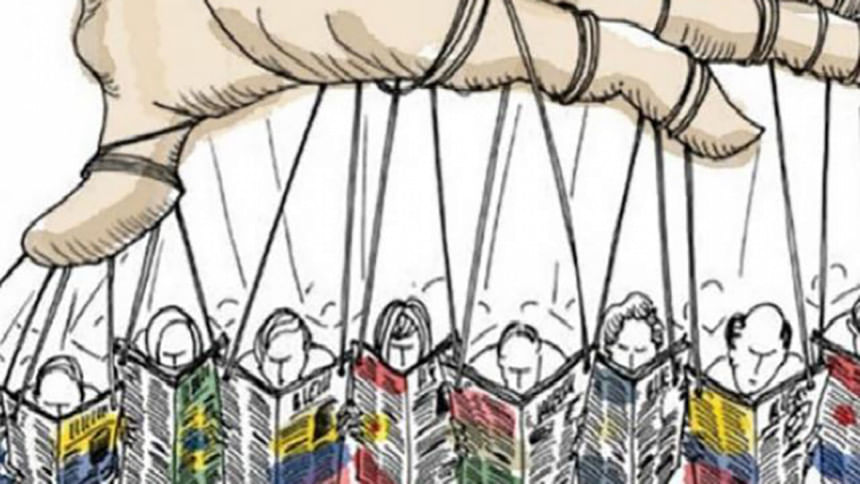
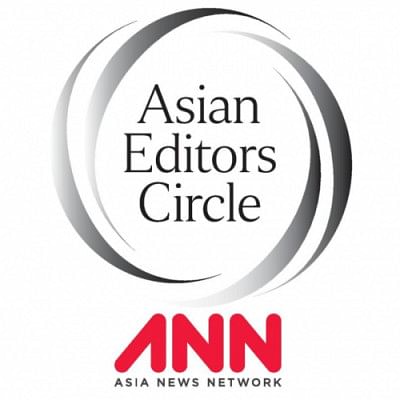
Press freedom was a fundamental pillar of modern civilisation.
Nearly all countries, save the communist bloc and the dictatorial regimes, ensured special protection for the media in their constitutions.
There used to be a competition of sorts to highlight media freedoms in developing countries to gain respectability in the international fora.
Jailing a newsperson was quite rare and closing down a media outlet was even more so.
Sadly, not anymore.
In the age of populism, ultra-nationalism, rising authoritarianism, post-truth and the emergence of leaders who can commit no-wrong, there is a new incarnation of press freedom.
It is "praise freedom"—where the press is fully free but only to praise and the more the press can praise, the freer it is certified to be.
Any alternative view is fake news, conspiracy, anti-national, anti-progress and, in some instances, acts of treason.
In the fairy tale "Snow White", in reply to the queen's well-known question, the mirror replies, "My queen, you are the fairest in the land."
The rise of the all-powerful executive branch—meaning governments—has directly led to the increased pressure on the press to "toe the line", thereby impinging on the media's freedom to function, since it is the press that "watchdogs" the government.
In today's world, more and more governments and political leaders want the media to be the mirror in that fairy tale that only sings praise and not be the "mirror" that reflects the reality of the society.
As in George Orwell's famous novel 1984, "War is Peace", "Freedom is Slavery" and "Ignorance is Strength"— so also in the world of "praise freedom", truth is false, facts are non-facts, to dissent is to sow a seed for chaos, to oppose the official narrative is to mislead the public, to give space to the opposition is to foment divisiveness and, God forbid, to reveal corruption in the highest echelons of power is nothing short of trying to destroy the country.
Since it is the free press that does all this, it is "the enemy of the people".
A new misplaced nationalistic zeal is now destroying the space for tolerance, multiplicity of views and challenging the very existence of the free press.
Suddenly, not to speak the truth that hurts is "patriotic" and "facts" are no more as sacrosanct.
US senator Daniel Patrick Moynihan's famous refrain that "everybody is entitled to their own opinion but not to their own facts" is now replaced by a different ethos—if facts don't support a particular contention, then invent them.
Over the last several years, we have been witnessing a deliberate discrediting of democracy as a political system.
That it is "cumbersome", "chaotic", "views of those who don't know enough or see far enough", "time consuming", and development requires quick decisions and centralised authority that gets things done.
After all, when the leader knows everything, people's views merely distract and confuse things. Built into this mentality is a disdain for public opinion, accountability and transparency—and for the media that raises too many questions.
Such a mind-set in time inevitably leads to a culture of impunity with mega corruption becoming its natural bedfellow.
Decline of the parliament as an "oversight" body has been a tragic development of recent times.
In the past, governments dreaded facing parliaments because of the grilling and drubbing that they would get from well-informed and elaborately researched questioning by highly committed and motivated elected leaders determined to serve their electorate.
The decline of the role of the opposition within the parliaments has greatly added to the accountability deficit we notice all over.
Judiciary's position is not very different either with its eyes not so much on people's rights and protection of all forms of freedom, but more on government's wishes.
Tragically, the "check and balance" system involving the judiciary, the legislative and the executive branches of the state, enshrined in every democratic constitution, has collapsed.
Over time, and for different historical reasons, the power balance shifted in favour of the executive branch leading to the emergence of authoritarian rule and elected "autocrats" and "demagogues" who project themselves as "demigods".
The rise of the all-powerful executive branch—meaning governments—has directly led to the increased pressure on the press to "toe the line", thereby impinging on the media's freedom to function, since it is the press that "watchdogs" the government.
When press freedom is being curtailed, freedom of speech can hardly remain unaffected. Democracy's precondition is individual freedom and freedom of speech that free media embodies as an institution.
It thrives by allowing multiple views, especially the dissenting ones, to be freely articulated forming a crucial part of public discourse.
By reflecting these divergent views, the media brings the multi-faceted thinking process into the public domain and thereby creates that vital intellectual ferment that allows a society to pick and choose ideas that benefit them most.
Just as body cells die without our blood bringing fresh supply of oxygen, so also a society dies without the "oxygen of latest information and fresh ideas" that are brought to fore through a free media and other institutions like the academia, think tanks, civic society bodies, etc.
A precondition for the existence of free media is freedom of speech and freedom of thought.
As Idi Amin, the former Ugandan Military strongman, is reputed to have said, "There is freedom of speech but I cannot guarantee freedom after the speech". It is that "freedom after the speech" which is now of highest concern for global journalism.
The number of journalists killed, injured, jailed, driven out of the country, intimidated, forced to indulge in self-censorship paints a very grim picture.
Yet, it is only a part of the whole picture which can only be gauged if we can know how many have been silenced. This "missing" intellectual ferment is the real loss for a society and for our future.
Just as the digital revolution brought new challenges and opportunities for the media, it has, unfortunately, also opened up a new avenue for government control.
In many countries, under the pretext of preventing the misuse of the digital space, sweeping laws—framed mainly to stem, rather than enhance, the flow of news, views and ideas—are being enacted with an eye on the digital and mainstream media that governments increasingly find difficult to control.
The US President, Donald Trump perhaps epitomises this new era of "Praise Freedom".
From the very start, he embraced only the media that praised him and called all others the "enemy of the people" and had nothing but loathsome words for them. Though he is not the first leader or head of government to hate the free press, he definitely gave the trend its most powerful boost.
Leaders from many parts of the world are now ardent followers of Trump and they all want the media not to play their traditional "watchdog" role but more that of the lap dog variety.
Populism and ultra-nationalism coupled with the rise of religious extremism have made prejudice and hatred an everyday affair, leading to a new height in intolerance that now seriously affects the functioning of free media—one of whose fundamental roles is to bring to light unpleasant truths, question the high and the mighty and uphold all forms of rights and freedoms.
These usually make for critical stories that populism, extremism and authoritarianism abhor. In Orwell's words, "If liberty means anything at all, it means the right to tell people what they do not want to hear".
What the media is fighting for today—and doing so ever more strongly and unitedly—is to preserve perhaps the greatest achievement of human civilisation: right to freedom of thought and right to freedom of speech.
The battle is for nothing less.
Mahfuz Anam is Editor and Publisher, The Daily Star.
The Asian Editors' Circle is a weekly commentary by editors from the Asia News Network, an alliance of 24 media in 20 Asian countries.
Follow The Daily Star Opinion on Facebook for the latest opinions, commentaries and analyses by experts and professionals.
To contribute your article or letter to The Daily Star Opinion, see our guidelines for submission.

 For all latest news, follow The Daily Star's Google News channel.
For all latest news, follow The Daily Star's Google News channel. 

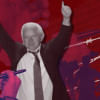
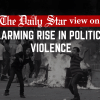
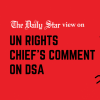




Comments